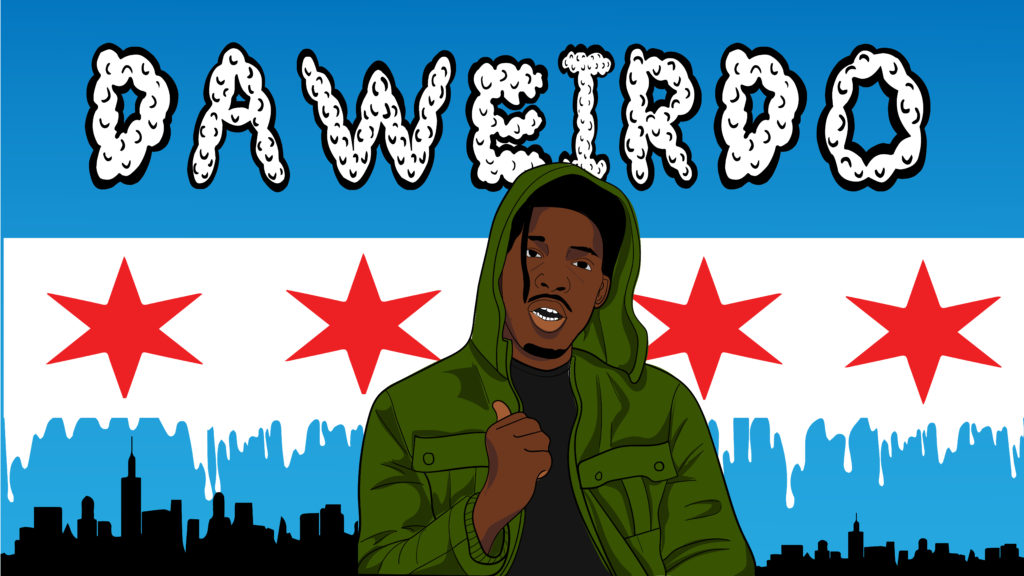
Based on media coverage, what do you think of when you hear “Englewood”? The high violent crime activity? An under-resourced community? Or the high drug infestation? If you were an outsider looking in, it is easy to assume these things, especially if you’re getting this information from the media. Rapper and Englewood resident Daweirdo (also known as Darrel McKinney) aims to show the perspective of a native raised around the toxic cultural norms that are found in Englewood, with his album “Lillieâ€.
Daweirdo sees Englewood as a neighborhood that society has turned its back on and condemned. Seeing how the media frequently shines a light on the increase of violent crime rather than the cause; it’s hard to see Daweirdo’s reflection as anything but true. It has been reported that “The average income [for Englewood residents] per year is $20,000, and according to government statistics, a family of four needs a minimum of $25,000 to survive and remain above the poverty line.†This poses the question: How do they make ends meet? Answer: Survival.
Some citizens have to go to extreme lengths to provide, and for some, it can go as far as compromising their moral beliefs. Daweirdo touches on this with the track “Don’t die brokeâ€. A track that describes the classism that plagues Chicago, where “The rich claim more, as the poor people die// The banks are on hold, while stuff falling behind// Trying to make a living, but no jobs are hiring// and time waits for no man, falling for a life of crime.†These are topics the media continues to skip over and instead talks about problems that are birthed from the stress.
Where we failing at in Englewood bro, there’s no leaders. There’s nobody that’s guiding the kids, like ‘Hold on little man, let me show you a different route’.
Daweirdo
His previous album Broke and Ugly paints what Englewood is like, while Lillie gives the perspective of a regular Englewood citizen, who chose a different route but still has flaws on the inside. Lillie gives listeners a passenger seat into the mind of dealing with the ups and downs of Daweirdo’s personal life, while also trying to stay away from the pitfalls of Englewood norms. This album does a good job of describing how these norms come to fruition, through the idolization of money and materialistic things stemming from the lack thereof. This leads to a sort of moral decay in the community.
Daweirdo doesn’t push the narrative that these are terrible people, but rather we are all people who can fall into traps created by a capitalist society.
In his track “Freak hoeâ€, Daweirdo describes a mindset that has been ingrained in people who fall into stereotypes. He characterizes someone who is intrigued by fame, idolizes money, and will get it by any means necessary. He also deems that this mentality was taught, which makes one question the family dynamic in that household.
When one sees certain behavioral traits of people, it can be assumed that it was birthed at home. So what exactly are the family dynamic norms in Englewood? A lot of individuals come from broken homes, or single-parent households where the mother has to work extra hard to make ends meet. When this happens, it’s not unusual for children to spend a lot of time with their grandparents. The grandparents play a huge role in a child’s development, especially the early years of their life, so it’s understandable why Daweirdo would title the album after his late grandmother.
On the track “Dear mamaâ€, he describes how his mom worked constantly to provide and her battle with addiction. From this information, one can assume he spent a good portion of his childhood with his grandmother, who instilled a code of ethics and gave a sense of guidance. In Daweirdo’s projects, he constantly describes pitfalls found in his community and talks about how he chose a different route. It is safe to say these came from the ethics instilled in him by his grandmother.
There’s a lot of stuff we got to be talked about man, there are not enough people on the front lines- you know what I mean?- Because right now it ain’t safe to go outside.
Daweirdo
Overall, this is a great project for those who are trying to get a better understanding of what’s it’s like growing up in Englewood and want to understand some of the cultural norms, instead of just watching the bias portrayed on the news. It’s a well-composed, cohesive project; and sonically you should expect the sound to be slightly experimental. It hangs in the “conscious†hip-hop lane, so if you’re into that then this album is for you. Fans of projects like Schoolboy Q’s Blank Face -with the experimental, abstract, and gritty sound- will enjoy this album.
For more updates about Daweirdo’s music and visuals, follow him on Instagram.
Click here to see all the stories covered in our Normalcy Issue.


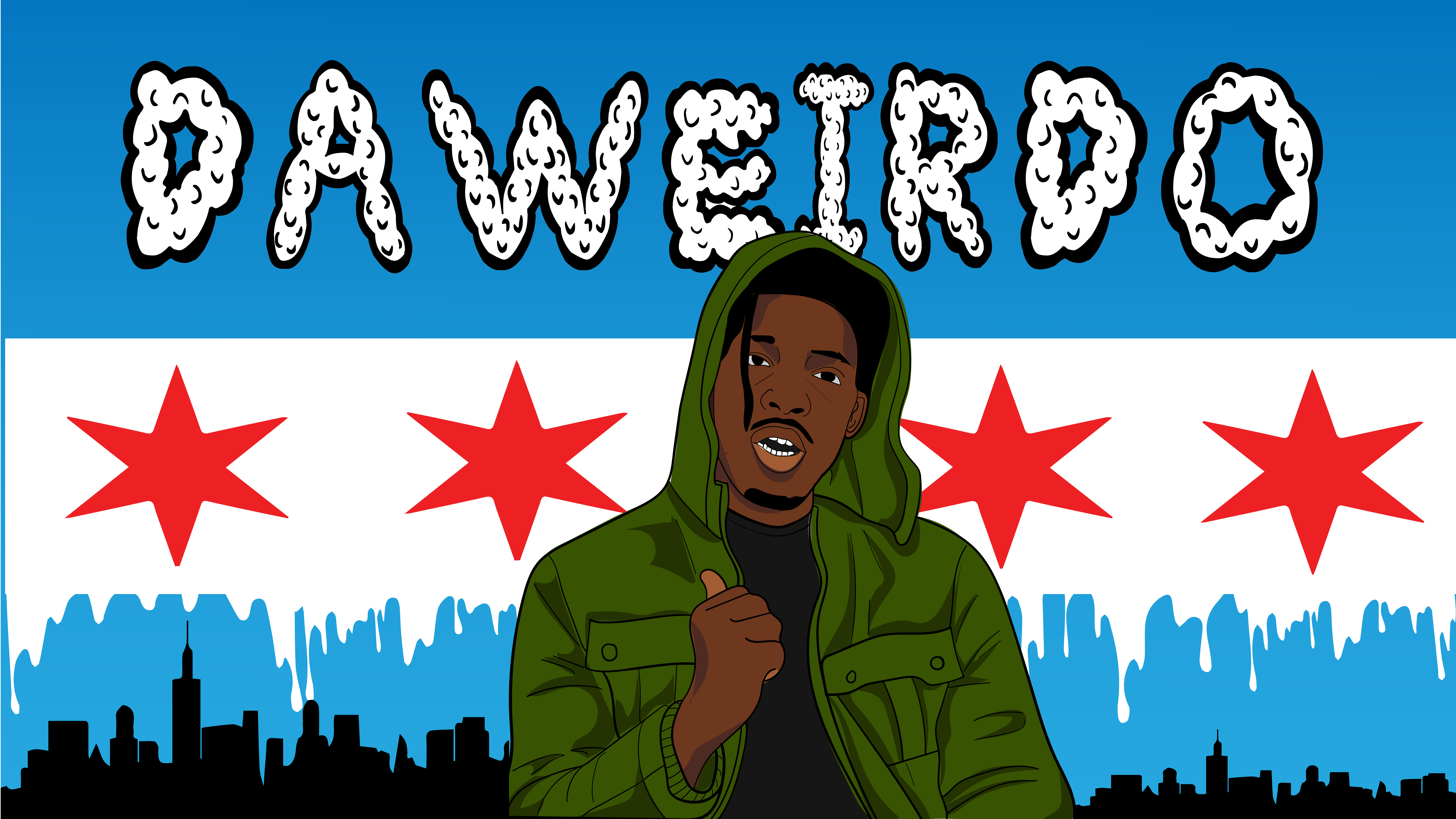


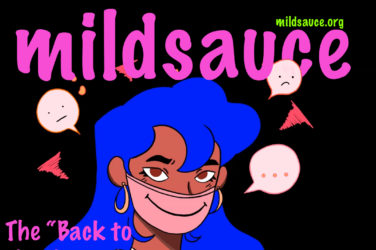
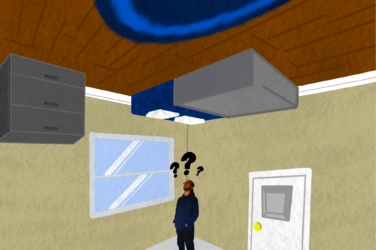
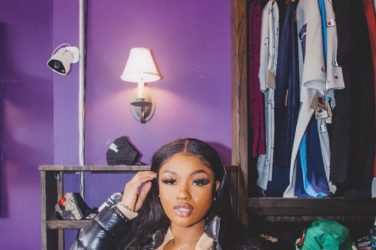
Show Comments (0)